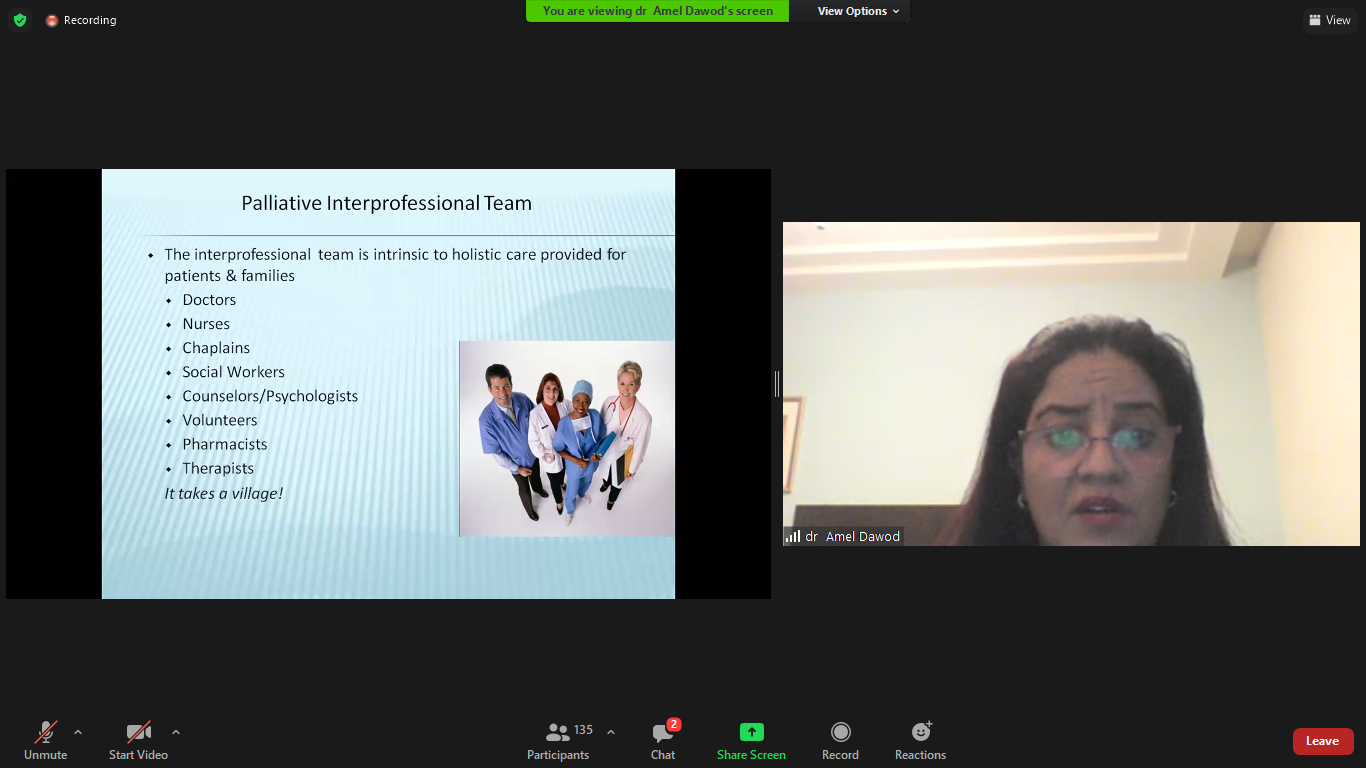UNAIR NEWS – As a collaboration between Universitas Airlangga and College of Nursing, King Saud bin Abdul Aziz University, Riyadh, Faculty of Nursing Universitas Airlangga (FKp UNAIR) held a guest lecture with Professor Amel Dawod Kamel Gouda as the speaker. The guest lecture held via Zoom Meeting discussed Integrative Support and Interprofessional Collaboration in Palliative Care.
The event held on Sunday, May 9, 2021 was attended by 160 students from 6th semester of Nursing Undergraduate study program. In the event, Prof. Amel stated that palliative care is the treatment of a patient with an incurable disease. Thus, the approach taken is to maximize the patient’s quality of life and reduce disturbing symptoms, reduce pain by paying attention to emotional, psychosocial, and economic aspects, as well as spiritual to meet the needs for improving the quality of life of a patient before dying.
“This treatment also provides a support system to help the patient’s family face the death of a loved one until the mourning process,” she said.
The main goal of palliative care is to relieve aches and pains and reduce the suffering that the patient. The focus of palliative care is to ensure that patients can live as comfortably as they want.
“Palliative care is useful for reducing patient suffering, improving quality of life, and also providing supports to their families. So, the main goal of palliative care is not to cure the disease, but to improve the quality of life, “said Prof. Amel.
The principles of palliative care are respect for every life, considering death as a normal process, not hastening or delaying death, and respect the patient’s desire to make decisions. The consent of the patient and / or his family is absolutely necessary before starting treatment.
“Even though in the end the patient dies, the most important thing is before he dies he is ready psychologically, spiritually, and is not stressed to face the illness he is suffering from,” she said.
Furthermore, Prof. Amel emphasized that health workers oriented towards palliative care must have an empathetic attitude, consider the patient as a unique individual, consider the patient’s culture such as ethnicity, race, religion, and other cultural factors influence patient suffering.
At the end of the lecture, Prof. Amel reminded that an integrated health approach that is active and comprehensive is very important for all health workers.
“An integrated multidisciplinary approach between doctors, nurses, physiotherapists, medical social workers, psychologists, nutritionists, clergy, volunteers, and other professions is needed to improve the quality and quantity of patient life,” she concluded.
As the best university in Indonesia , UNAIR supports its human resources to develop themselves so that they can contribute to society. (*)
Author: Adelya Salsabila Putri
Editor: Khefti Al Mawalia





